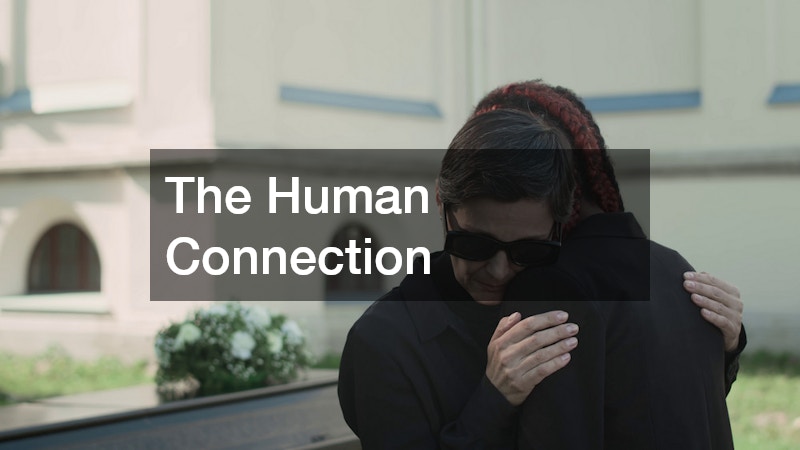
A funeral home is more than just a building where services are held—it is a place where compassion, respect, and guidance come together to support families during one of the most difficult times of their lives. For generations, funeral homes have served as anchors of their communities, offering not only a location for memorial services but also the emotional care and structure families need when navigating loss.
A Place of Comfort
When someone passes away, families often experience a whirlwind of emotions—grief, confusion, and sometimes even disbelief. A funeral home provides a setting that feels both comforting and dignified.
The atmosphere is often intentionally designed to be peaceful, with calming décor, warm lighting, and private spaces for quiet reflection. This environment allows family and friends to gather in a supportive setting, where they can honor their loved one’s memory and lean on each other for strength.
Beyond the physical space, the people who work at a funeral home play an important role in creating this sense of comfort. Funeral directors and staff are trained not only in managing arrangements but also in extending compassion and empathy to those they serve. They listen, guide, and stand alongside families, ensuring they feel understood and supported.
Honoring Life and Legacy
One of the most meaningful aspects of a funeral home is its role in honoring the life of the person who has passed. Every life is unique, and the way it is celebrated should reflect that individuality. Funeral homes often help families create personalized services that capture the essence of their loved one.
Some families may choose traditional ceremonies that follow long-held customs, while others may want more modern or personalized gatherings. Whether it involves music, storytelling, photo displays, or rituals that hold special meaning, the funeral home provides the framework to bring these elements together. The goal is to craft a service that not only remembers the person but also celebrates their contributions, passions, and values.
A Gathering Place for Community
Loss does not only affect immediate family—it ripples through circles of friends, neighbors, coworkers, and communities. A funeral home becomes a central place where everyone touched by the individual’s life can come together. These gatherings provide an opportunity to share stories, express condolences, and strengthen bonds among those grieving.
Community support plays a significant role in the healing process. Being surrounded by others who cared for the deceased can bring comfort and remind family members that they are not alone. This collective presence often becomes one of the most memorable and meaningful aspects of the service.
Guidance During a Difficult Time
Planning a service can feel overwhelming for families, especially when emotions are raw. A funeral home provides clarity and guidance throughout the process. Funeral directors help families understand options, coordinate details, and handle logistics, allowing loved ones to focus on healing and remembrance.
From organizing the order of service to arranging transportation and preparing for visitations, funeral home staff ensure that every detail is handled with care. Their expertise and steady presence provide reassurance during a time that can otherwise feel uncertain.
Preserving Traditions While Embracing Change
Funeral homes have a long history, but they have also adapted to meet the changing needs of modern families. While traditional services remain meaningful for many, others may seek different approaches to memorialization. Some families prefer small, intimate gatherings, while others may look for creative ways to honor their loved one, such as multimedia tributes or themed celebrations of life.
In addition, technology now plays a greater role in how families gather. Many funeral homes offer livestreaming for those who cannot attend in person, allowing friends and relatives across the country—or even the world—to be part of the ceremony. This blend of tradition and innovation ensures that every family can find a way to honor their loved one in a manner that feels right for them.
A Lasting Tribute
Beyond the day of the service, a funeral home also helps families create lasting tributes. Memorial books, photo displays, and keepsakes provide tangible reminders of a loved one’s life. Some funeral homes even assist in creating digital memorials that can be shared with extended family and friends. These tributes serve as enduring ways to cherish memories and pass stories down through generations.
The Human Connection
Ultimately, what makes a funeral home so important is the human connection it fosters. In a time when grief can feel isolating, the presence of caring professionals and the opportunity to gather with others provides comfort. It is not only about saying goodbye but also about remembering, sharing, and finding the strength to move forward.
Funeral homes hold space for both mourning and celebration. They remind us that while loss is deeply personal, it is also something that connects us all as human beings. By providing a place of compassion and remembrance, they help transform sorrow into a shared journey of healing and memory.
A funeral home is more than a location for services—it is a sanctuary of compassion, guidance, and remembrance. It provides comfort during life’s most difficult moments, supports families in honoring their loved one’s legacy, and offers a gathering place where communities can come together. At its heart, a funeral home is about people—helping them grieve, remember, and begin to heal.
